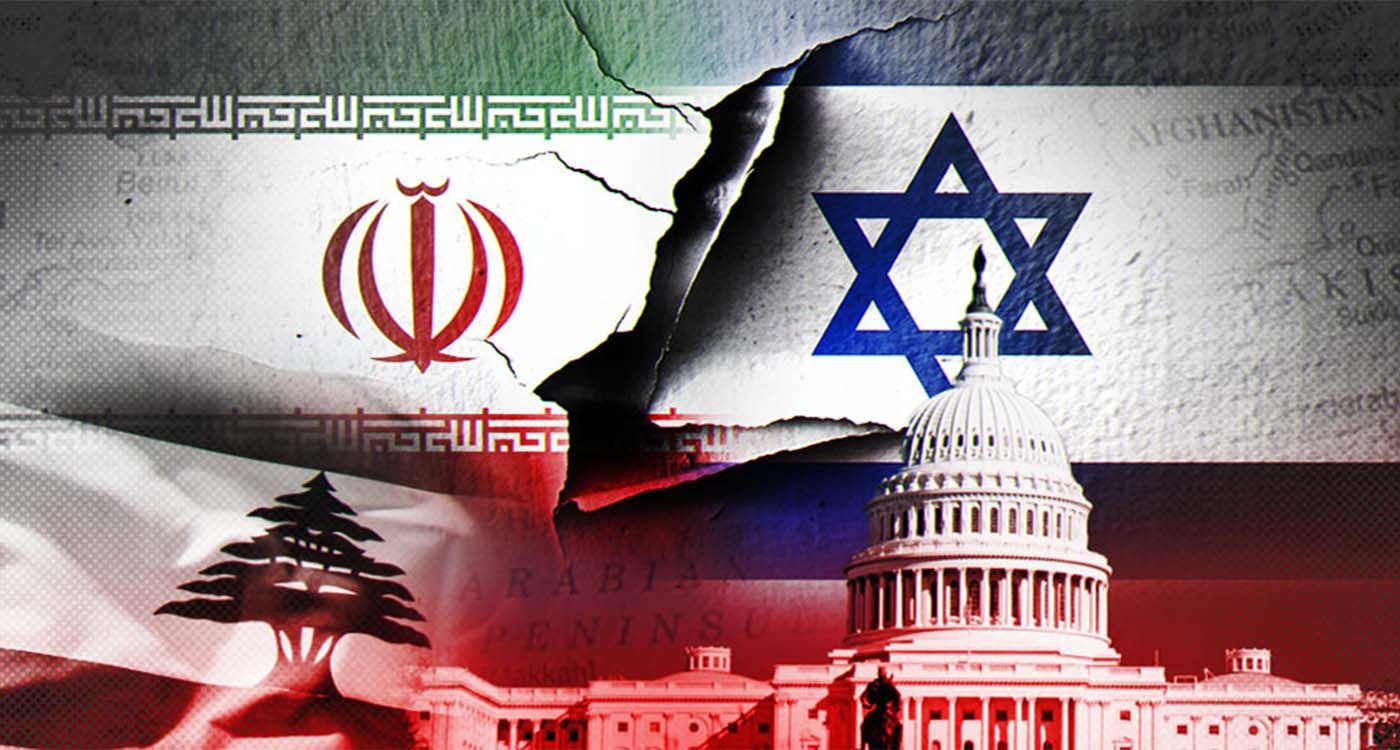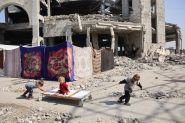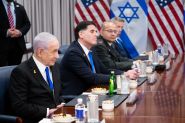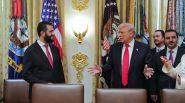- Home
- Middle East
- America, Iran, Israel, and Lebanon

©This is Beirut
Most American presidents avoid plunging into Middle East peacemaking as long as possible. There were two exceptions: Bill Clinton started in his first month with a "Syria First" strategy for peace between Israel and its neighbors. Barak Obama on his "day two" launched a respected envoy to pursue a West Bank settlement freeze and two-state solution. Both ended their terms disappointed by results which diminished their reputations.
The others in my 38-year diplomatic career -- Reagan, two Bushes, Trump, and Biden -- resisted the siren call of Middle East peacemaking as long as they could, but found events driving -- and even at times devouring -- their diplomatic agendas. Only two of them left office with something positive to their credit. Bush 41's Madrid process set a decade-long framework for peace and normalization between Israel and Arabs. And Trump's Abraham Accords offered a fresh and novel approach to Israeli-Arab relations detached from the crippling pathologies of the decrepit and corrupt Palestinian Authority. But even they were driven to these outcomes by events.
When it comes to global priorities, Donald Trump will want to focus on the things that matter greatly to him and helped elect him: trade and tariffs, illegal migration, competition with China, and greater burden sharing by allied and partner countries in dealing with problems around the world. There is nothing new, partisan, or isolationist about that, even if the intensity of his unconventional approaches and rhetoric upsets some.
But the fact is, Trump on "day one" will need to tackle the conflict in the Middle East. He will face a basic choice: go for short-term, tactical, management approaches, or take on the core problem? And the core problem today is Iran, the center of the chaos we and our Arab and Israeli friends are encountering. We will have neither enduring peace nor successes so long as Iran has the ability to project power all around the region. If it can continue to be the dominate player in Baghdad, Beirut, Damascus, Sana, and (until lately) Gaza, its well-timed violence and mayhem will ruin eventually any ceasefire or peace initiatives meant to help Israel and its neighbors coexist. They will only be temporary patch jobs until the allies of Iran regain the means to plant bombs and launch missiles again, which won't take long. The Israelis have absorbed this reality as part of the "never again" lessons of October 7, 2023. So, even if the Trump Administration adopts the easier, short-term management path, neither the Israelis nor their Iranian-sponsored enemies will cooperate, whatever they may say.
Yet, out of the carnage, is a rare opportunity presented to a new American president: to complete what Israel has begun in shifting a power equation in the Middle East that has favored Iran for too long. Since the 1990s, America has unintentionally created circumstances favorable to Tehran by removing major threats to it such as Iraq's Saddam Hussain and the Afghan Taliban (until 2021). We had our reasons, but the consequences were a geopolitical prize for Tehran. So, too, were, American initiatives after 2021 which ended any pressure on Yemen's Houthis. And for close to twenty years we have observed Hamas' illegitimate seizure and dominance of Gaza, with Iranian backing, with nothing more than a helpless shrug. During these periods, American diplomacy at times was ambitious and at times focused on mini-moves, but it rarely addressed the core of the problem: Iran's ability to project power, cause chaos, and exploit localized problems to advantage. Trump's first term departed from this approach, applying maximum pressure on Iran to contain its malign behavior for two years. It was not in place long enough to judge the results.
Will Trump 2.0 resume that effort? Some of the initial nominations of senior personnel are promising in this regard. Marco Rubio takes a realistic and hard line toward Iran, as do some others slated for the NSC. The important thing is that Trump and his inner circle not become distracted by expedient, short-term Middle East fixes. They should appreciate the opportunity to press home the advantages Israel has created -- grisly as the process has been -- to address the true source of the carnage and instability, Tehran. But success will take time.
Specifically in Lebanon, all of the conventional thinking at the State Department and in Washington should be ignored. Unless the regional power equation is substantially altered, fiddling with ceasefires and mini-moves to improve UN Security Council Resolution 1701 (2006), or electing a president when Hezbollah can still dominate the process, will do nothing to avoid a repetition of the past year of war and dislocation. The issue is not 1701, or the election of a president, or making a deal with double-crossing terrorists such as Hezbollah. The issue is altering Iran's ability to project power into the Levant. Iran -- not its disposable Arab allies -- must bear the costs for its behavior for there to be change. That is the task of America, Israel, and a like-minded coalition. As we proceed, the local goal in Lebanon -- with Hezbollah weaker and Iran recalculating its risk/benefit calculus -- should prioritize disarming Hezbollah, as called for in UN Security Council Resolution 1559 (2004). Local buffer zones, Lebanese army deployments, and UNIFIL troops will mean nothing without a change in the regional power balance. If there is a shift in power, the main chance is to ensure Hezbollah surrenders its arms.
Hezbollah has killed hundreds of Americans and thousands of Israelis, and murdered or terrorized any Lebanese who dared to challenge their ability to rule by the gun. We have a once-in-a-lifetime opportunity to change that equation. The goal is not to eliminate Hezbollah -- its roots are too deep now for that -- but to create circumstances that remove those guns, just as happened with every other Lebanese militia a generation ago. That should be the central focus of American diplomacy toward Lebanon today, as a subset of a larger game plan to compel Iran to change its regional behavior. Otherwise, sometime in the next four years, we will awaken to another brutal set of Iranian-directed attacks or attempts against Israel, and endure the inescapable Israeli response. No one should wonder how it happened.
Read more




Comments